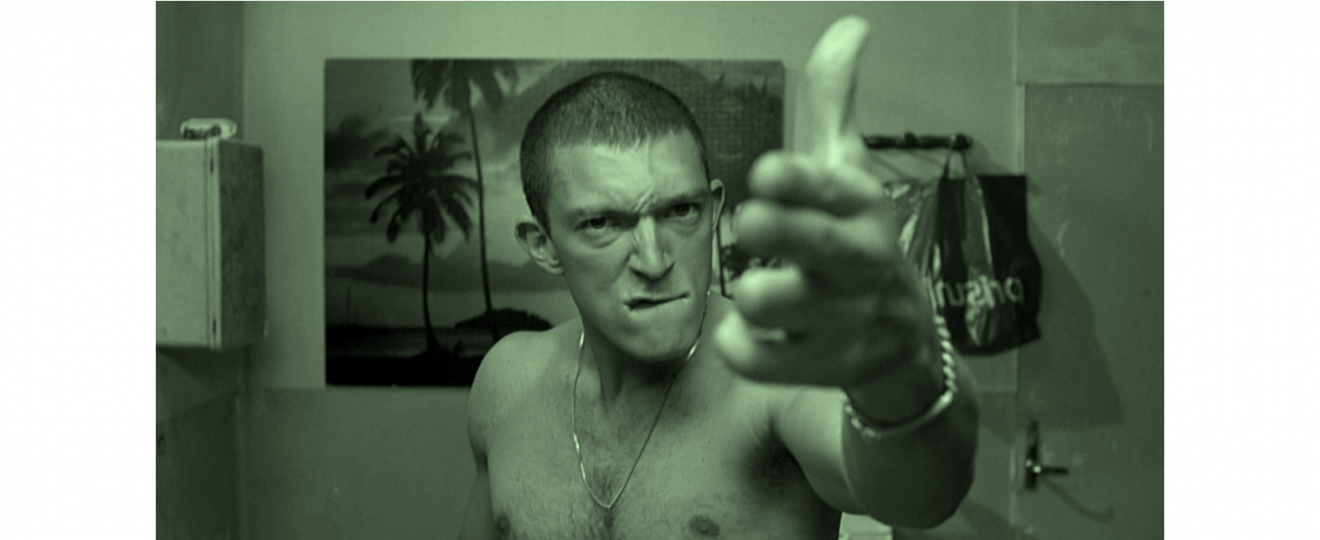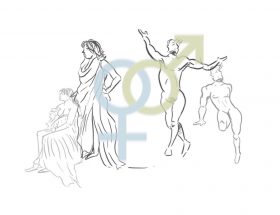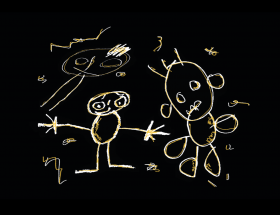[This is the third of three pieces inspired, yet not strictly following, this format. They all attempt to present different criticisms to society as a whole in a more literary, rather than journalistic, style.]
It has been recently brought to my attention that I seem to have an obsession with Capitalism, with criticizing it as a whole rather than addressing its various aspects individually and assessing their pros and cons; that my statements are movie-like and not productive, that my demonization of it is pointless.
Maybe I do make the mistake of overdramatizing Western life under Capitalism for the sake of argument; maybe I construct niche criticisms of the system via philosophical ramblings no one truly cares about; maybe I don’t know enough about economics, politics, or society to devise an informed opinion, one that can have an impact on the overall state of things. Maybe I need to take a step back and break down the concept, trace back the intellectual hate the system triggers in me to its original source.
From my severely historically under-informed point of view, the root of what we today regard as Capitalism– modern capitalism?– seems to be found in the beginnings of the Industrial Revolution, in the monstrous social change that it unleashed: the well-known Victorian characters, the orphan resorting to theft to survive, the grey-and-black colored hours of factory workers whose wages barely afforded them survival. We read (mostly consume in the shape of movies) Dickens and sigh, labeling the depicted reality as horrifying, unacceptable, shedding a tear at the begging child and expressing thankfulness that “things are no longer like that”. Yet 1100 people died in a Dhaka factory accident only six years ago, a factory producing apparel for brands like Gucci and Versace, Mango and Primark; 25 died in a fire in a shoe-making factory in Lahore in 2012, when the sparks from a faulty electricity generator flew into chemicals. Fashion industry workers today in South East Asian countries continue to earn less than the living wage, making around €49.56 a month in Bangladesh (living wage: €259.80), €51.70 in India (living wage: €195.30), €72.64 in Cambodia (living wage: €285.83). Over 38 million, 27.2%, of the 152 million children in child labor worldwide are paid workers, 73 million take up hazardous work, and around 4.3 million are victims of forced labor. How can we say things have changed when we have merely moved them elsewhere? How can we shake our heads at ‘former’ cruelty and not see it spiraling around us today?
I don’t care about economic progress in the West if the price is neo-colonialism (Coca-Cola’s water wells belong to communities) and suffering elsewhere; I don’t care about shining goods that make things ‘easier’ (we know we don’t even need them, for we have ourselves created the necessity out of thin air) if they’re polished with the tears of mothers forced to abandon their children. How not to hate a system in which injustice is so deeply ingrained?
It’s not as if circumstances in the West were idyllic either. Even if Communism doesn’t pave the way to a fair system, Marx’s idea of workers’ alienation from their job still holds: in childless and sootless offices, duties have remained mechanic and repetitive, unappealing to individuals– we have created the concept of weekends and holidays, the implicit acceptance that not only does one need to rest, but that one needs to escape one’s shitty job; to move as further away from it as possible, to travel. We allow ourselves to be caged in entirely artificial environments that are only renovated and improved with productivity as the targeted outcome– no one believes a corporation (Google? Google) would redesign its offices solely in the name of happiness. Capitalism places money and production above the welfare of the worker herself. How do we so clearly see the flaws of the Soviet perception of mental illnesses and not acknowledge that the long hours, the risk of unemployment, the impacts of the entrenched social hierarchy are but some of the causes of the epidemic of mental health problems eating away at our society? Capitalism has brainwashed us into spending everything for the sake of money, from quality time with our families(how can we deny that the system is rotten when 104 minutes in a day of 1440 seems like a lot?), to stress and anxiety.
The current system has rendered us simultaneous means of production and consumers: not only do we take up uninspiring tasks in services and industry, but our bodies and dreams have been identified as exploitable raw materials, land in which to plant the seeds of invented needs; and we have engaged with the scheme through our inability to reclaim our ‘flaws’ as natural differences that don’t need to fit into an ideal, our ‘failure’ as an alternative path towards finding whatever happiness and success are supposed to mean. Continuous insistence on mass clothing size labeling that rejects the infinite variety of body shapes and sizes; an education system that highlights the importance of “acquiring the tools” over appreciating new knowledge. How could I smile at Capitalism when it treats us like factory units?
Because, for Capitalism, the world is its factory: it has subjugated the environment to the double role of enslaved provider and waste container, bringing out the worst in us, the desire for more, to lure us into turning a blind eye to the torture of other animal species, to the unstoppable destruction of planet earth, the only place we can all call home. We all know this.
Maybe that’s why I hate Capitalism the most.
No matter how aware we are, how wrong we know all of its deeds to be, we continue to engage with it, to work for it, to keep it alive. Capitalism is no longer abstract, Capitalism is us. Why do I still wear clothes from Zara? Why do I buy dairy products and technology containing coltan? Why do we all do?
Maybe we won’t learn how to be better until an alternative emerges; maybe we have all truly grown to believe that Capitalism is the only system that works. A lie; human beings built this system from the ground-up: surely we can dismantle it, surely we can formulate something better. I don’t have all the answers yet so, excuse me if while I try to figure them out I refuse to wash Capitalism’s feet– the very least I can do is to continue formulating my grandiose critique.
[Part I: https://brizomagazine.com/2019/07/22/stream-of-consciousness-i-on-how-we-find-ourselves-complying-with-society
Part II: https://brizomagazine.com/2019/07/22/stream-of-consciousness-ii-on-my-break-up-with-existentialism ]
Image: Vincent Cassel in ‘La Haine’, by Mathieu Kassovitz




